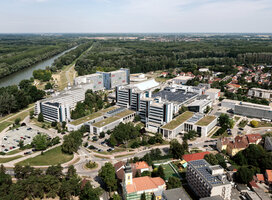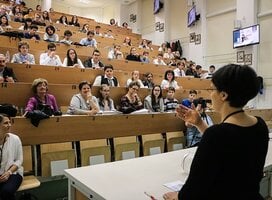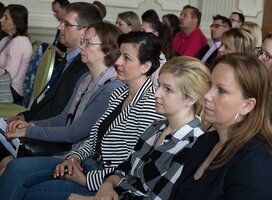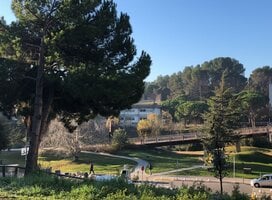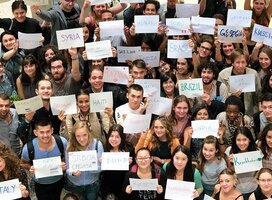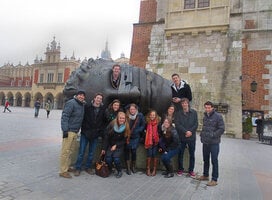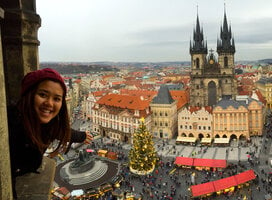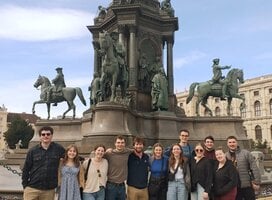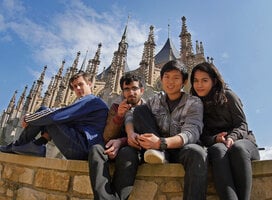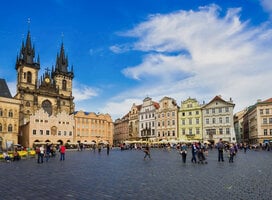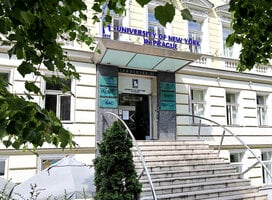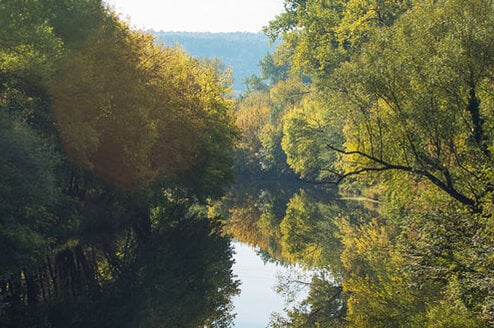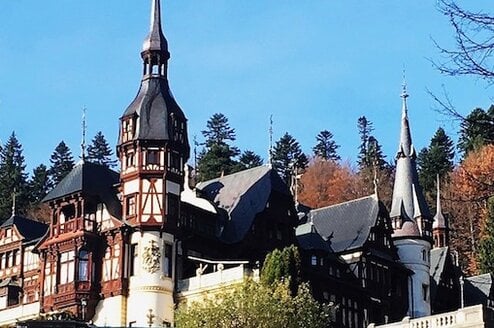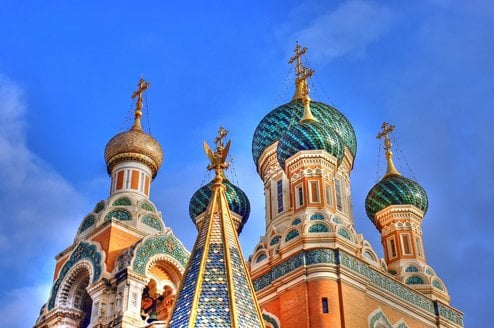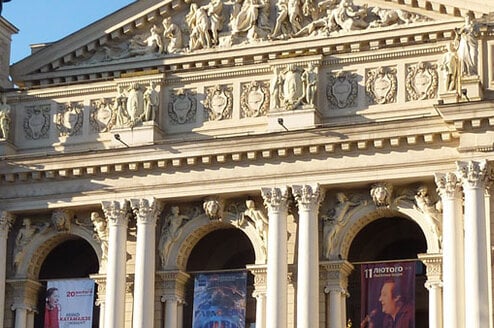Study Abroad in Hungary
Bordering seven countries, Hungary is sometimes referred to as "The Gateway to Europe." While it may be a destination off the beaten path, Hungary certainly is worth the trip. Sometimes taking a back seat to some of her more glamorous neighbors, modest Hungary awaits your arrival with no shortage of things to explore.
Hungary places a great emphasis on education and is currently undergoing major reforms. Students who study here will have the benefits of courses in English alongside an authentic and rich cultural experience. A favorable exchange rate also allows for exploration of surrounding regions.
Budapest: Budapest or Prague—the contest between the most beautiful Central European capital is still up for debate! Decide for yourself which wonders are more likely to take your breath away. Split by the Danube River, Budapest is made up of districts "Buda" and "Pest," with architectural wonders springing up between green parks, museums, shops and cafes that have survived centuries of change. Remnants of Communism are relegated to the Heroes Statue Park, and visitors can shop at the local flea markets, soak in a thermal bath, and take in the imposing sites of the Chain Bridge against the House of Parliament in this magical environment.
- University of Budapest (Eötvös Loránd University): Today the University has 8 different faculties and more than 30,000 students. According to the Academic Ranking of World Universities by Shanghai Jiao Tong University (2010), it was qualified as the best university in Hungary (301–400th in the complete list), along with the University of Szeged.
- Budapest University of Technology and Economics: Often abbreviated as BME, or in English, BUTE, this university is the most significant University of Technology in Hungary and is also one of the oldest in the world. At present the university has eight faculties including: Civil, Electrical, Mechanical and Transportation Engineering, Architecture, Chemical and Biotechnology, Informatics, and Natural Sciences.
Pecs: One of Europe's 2010 Culture Capitals, Pécs is a culturally diverse and stimulating city, with a population of about 180,000. Pécs offers both the amenities of a larger city and the charms of a small town surrounded by wineries, forests and spa villages. The city's motto is "The Borderless City" and has recently re-dedicated public places, streets, squares and neighborhoods, as well as new cultural centers, a concert hall, a new library and a "cultural quarter."
- University of Pécs: As with the creation of other modern Hungarian institutions of higher learning, the University of Pécs was (re-)founded in 2000 through the merger of Janus Pannonius University, the Medical University of Pécs and the Illyés Gyula Teacher Training College of Szekszárd.
- The University now offers a broad range of programs and high-level knowledge-transfer and research. With its more than 29,000 students and nearly 2,000 staff the impact of the University extends well beyond its borders.
Debrecen: Discover the second most populated city in Hungary, located only 130 miles from Budapest. Wander through lush, green forests surrounding the main university campus, or relax in a Hungarian bath house or water park on a break from class. Additionally, Debrecen is home to many music and drama festivals, concerts and active student nightlife. Live and breathe like a true Hungarian in Debrecen.
The city of Debrecen is also home to the American Corner of Debrecen, a cultural and informational resource center founded by the US Embassy, the City Council of Debrecen and the University of Debrecen, in order to foster US-Hungarian relations. The American Corner also sponsors English lectures, films, comedy nights, game days, sports teams and events such as the Annual Festival of Drama in English.
- University of Debrecen: The prestigious University of Debrecen was legally established in the year 2000, when the three independent universities of Debrecen merged to form a single institution. UD has three centers (Agricultural, Medical, Arts and Sciences), several research institutions and 15 faculties, educating over 30,000 students. UD’s central library is the second biggest in the country with its 6 million volumes. The university sports center proposes over 20 different courses for students.
- The University of Debrecen offers a number of English language programs, mainly in the fields of English and North American Studies, natural sciences, computer science, engineering, business and economics, medical studies, music, gender studies, drama studies, British studies. Additional courses may be started on demand and one on one tutorials may be given to students with specific needs. Students may also contact professors directly prior to admission with course requests.
- All dormitories have a refrigerator in each room, a well-equipped kitchen on every floor, laundry facilities, study and clubrooms in each building. All rooms have internet access. Students also have access to gym, and sauna facilities.
- The University is home to soccer fields, tennis courts, a track and other sport facilities for student use. The University is located adjacent to a park that features a pond for fishing, running and biking, a zoo, an ice skating rink, and a zoo (open mostly in Spring).
Student Visa/Residence Permit
For more information, please visit the consulate website.
Visa regulations and fees change often. Please contact the embassy or consulate general with jurisdiction over your permanent address in order to verify this information before submitting your documents and fees.
Understanding Academics in Hungary
The Hungarian academic year runs generally from September until July, with examination period generally running from May-July, depending on faculty. Most exchange students can arrange to take exams early. Fall semester runs generally from September to December, with a week-long vacation in October. Spring semester runs generally from February to May. A month long break over January is also standard.
Social Life Beyond the Classroom
Hungarians can be shy at first, but once you get to know them, they are very interested in getting to know you! Some might be unsure of their English skills, and the very outgoing American demeanor is unusual to them. However, for Hungarian students that have already spent some time in an English speaking environment, they'll love talking to you about their experiences and practicing their English.
Many Hungarian students also live at home, which means that on-campus life will consist of many international students and city life could be filled with tourists. That doesn't make it any less social, however!
Hungary's most outstanding annual events include the Budapest Spring Festival, which takes place in the last two weeks of March. Its main emphasis is on symphony orchestra concerts, opera and ballet performances which will appeal to the widest audience, but the program also includes open-air events and an Operetta Festival. The performances take place in the capital's most important concert halls and theaters, and often near historic monuments.
Hungary is a land of thermal water. A passion for spa culture and Hungarian history have been connected from the very beginning. Hungarian folk art, including dances, music, cross stitching, embroideries, costumes, potteries, wood carvings, basket weavings, porcelains etc. has a long and rich history which play a significant role in local folk traditions and customs.

